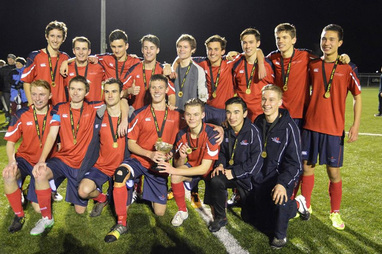 Hutt International Boys' School (HIBS) are the Trevor Rigby Cup First XI football champions for the first time. On Wednesday night at Memorial Park in Petone they upset Wellington College 3-1 in the final. Wellington are a perennial powerhouse and appeared to be on course for yet another title. In their previous game against HIBS they scored a resounding 5-1 victory. They had outscored HIBS 45 goals to 28 across the course of the competition and boasted the two leading scorers in the region, Christian Martin and Luc Saker. HIBS captain is Callum Martin. He admits there was some serious soul searching done after the previous thumping. "We didn't turn up. For the final we decided we had to be more physical, get the ball in the air and use our set pieces to try and unsettle Wellington," he says. "We played quite high defensively to try and shutdown the space and time their strikers had on the ball. " The plan worked a treat. HIBS struck early and Wellington College never recovered. Martin describes the goal scoring action. "Jack Millar opened the scoring in the third minute. He tucked a low cross into the right hand corner of the net. In the 35th minute Simon Belcher scored after a long throw and then Logan Archer scored in the second-half after a free kick." Wellington would be kicking themselves. Martin claims HIBS had more passion and Wellington was surprised by their intensity. There is plenty of intensity in the HIBS coaching department. The side is guided by Brendan McIntyre who took St. Pats Silverstream to the National final in 2011. "Brendan is great. He is loud and passionate, but he knows how to get the best out of the boys," Martin says. One player who has flourished is Ben Sears. He scored a team-high nine goals in 11 games, including the winner in the first game against Wellington College. Martin singles out the First XI cricketer for praise. "Ben runs uncoordinated , but it kind of works for him. He is really strong on the ball and has a bullet shot." HIBS will need to bring plenty of ammunition to the Nationals in two weeks. They are grouped with defending champions Sacred Heart College, Super 8 champions New Plymouth Boys' High School and Nelson College. Martin says a top eight finish is the goal. Last year HIBS was 19th. 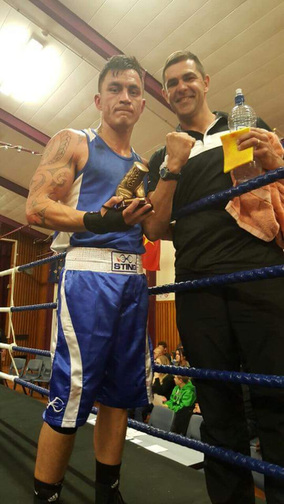 Before he was 14 years old, Andrew-Dean Kupa-Caudwell had survived a vicious dog attack and a close call with terminal cancer. These experiences were nothing compared with the anguish of languishing in the Rimutaka Prison At-Risk Unit in Upper Hutt. On December 1, 2009, at the age of 18, Kupa-Caudwell was sentenced to six years in jail for the manslaughter of a local Masterton man. "Every prisoner thinks about suicide, especially when they first go inside. I was on ARU for eight days. They put me in a straitjacket and locked me in a small dark room for 23 hours. I felt like a lonely boy drowning in the middle of the ocean," Kupa-Caudwell lamented. Kupa-Caudwell was a regular drinker. He struggled to handle his alcohol. "I became loud, arrogant and violent on the booze. Six bourbon and cokes were enough for me”. Bumptious behaviour attracts bad company. Kupa-Caudwell started hanging out with two individuals with a tempestuous reputation. One of these individuals was eight years older than Kupa-Caudwell and was a local drug dealer and liquor supplier for the under-aged. He had multiple convictions for assault. Kupa-Caudwell admitted he looked up to him. October 9, 2008 started out like most nights- birds, booze and a party. Kupa-Caudwell and his volatile mates were wandering the streets of Featherstone in the early morning when tempers flared ending in a tragedy. Kupa-Caudwell recalls his role in the death of a 36-year old local. "It was about 2am and he came out waving his hands and abusing us. He called me a nigger and then grabbed my shoulders and rattled me. I pushed him away and then clipped him with a right hand. I knocked him to the ground with a left and walked away." The man tried to run off. He was tackled to the ground by Kupa-Caudwell's mates who repeatedly kicked him in the head, Kupa-Caudwell said. "I think those were the fatal blows." Initially, Kupa-Caudwell was a casual observer of the assault. "I just stood there. I didn't care about the man or his family. I thought he was a weirdo." Eventually panic set in. Kupa-Caudwell stole a phone from the man's bag and tried to call his girlfriend without luck. At 3:30am he sent the following text: "Babe please don't text this number back. I got a crack (fight) and murdered someone babe." Andrew-Dean senior, a Wairarapa constable between 2003 and 2009 said it was a tough place to work due to rampant domestic violence. However, nothing prepared him for the shock he experienced when his son was implicated in a murder. "The day the cops came around to arrest Andrew was heartbreaking. My stomach sank and I felt sick. I offered to resign, but my fellow officers encouraged me to stay. I was grateful for their support, but it didn't make life any easier." Kupa-Caudwell pleaded guilty to manslaughter. The trial dragged on for months. There were conflicting eye-witness accounts regarding his role in the assault. The brazen text he sent and his father's position within the police force complicated matters. Justice John Wild labelled the violent assault as "vicious, gratuitous and cowardly." Kupa-Caudwell was born in Carlton, Sydney on June 13, 1991, the eldest of six children. When he was four years old he was confronted by a belligerent pit bull terrier chasing a kitten. "The pit bull was going to eat the kitten. I started chasing the kitten to try and save it," Kupa-Caudwell recalled. "I fell over and the pit bull ravaged my face. I have a permanent scar on my right check as proof." At eight years Kupa-Caudwell moved to Masterton. Showing a natural talent for sport, he developed the ambition of many young Kiwi boys, to be an All Black. But his hopes were seriously derailed when in 2003, he was diagnosed with osteosarcoma in the knee. Kupu-Caudwell described the early symptoms. "I woke up in the middle of the night sweating. It felt like somebody was hammering a nail into my leg. I stood up to get some water and collapsed. I was taken straight to the hospital." In hospital he faced three choices; leave it untreated and die, amputate, or endure multiple operations and chemotherapy for however long it takes to recover. Kupu-Caudwell and his parents decided to pursue the latter, despite the doctor suggesting survival odds of only twenty percent. For eighteen months Kupu-Caudwell received chemotherapy. "It was overbearing. Everyday brought a new stress. I reckon it cost us sixty grand over five years. We had to sell the house, buy a new car to transport Andrew and his wheelchair, pay for the operation and rehabilitation, while supporting the rest of the family," Andrew-Dean senior recalled. Recovery from the cancer was slow and included fitting a titanium knee but he was able to resume sport and to flourish; however trouble was brewing. Kupu-Caudwell regularly wagged school. In year 10 he was suspended from Wairarapa College for smoking. "My mates and I had a gang; we called ourselves the 'brown skin stunners.' How dumb is that? We would take on anyone who challenged us. We had a few big boys in the group so we beat up some seniors and quickly earned a reputation." Kupu-Caudwell transferred to Kuranui College. A similar pattern followed. "Kuranui was even more violent than Wairarapa. There were fights in the classroom, fights at lunchtime and fights afterschool. I would pick fights just for the sake of it. I was 14-0 as a street fighter. I loved it." He played First XV rugby, First XI cricket and Senior A basketball while at high school. He was regularly selected in Wairarapa age group rugby and cricket teams. He played representative rugby alongside future All Black Zac Guildford and cricket with future Black Cap, Doug Bracewell. Kupu-Caudwell's uncle was the former New Zealand Maori rugby player Charlie Kaka and his son Gillies Kaka is currently a member of the New Zealand Sevens team. Charlie described Kupu Caudwell's prowess as a rugby player. “He was sharp. He took to most sports like a duck to water. He was a first-five who could have gone a long way with his rugby." His love of street fighting vanished in prison. Kupu-Caudwell recalled his first week in the At Risk Unit. "I had a bird's eye view of the entire prison block. It was scary. There were men with no teeth and tattoos. Many were unremorseful and racist. The skinheads didn't get along with the Pakeha, the Samoan didn't get on with the Maori. There was drugs exchanged, threats made and fights. It was horrible." Kupu-Caudwell's strategy for survival was to keep to himself. He even refused to talk to his parents for eight months. His good behaviour earned him transfers from Rimutaka to Kaitoketo and then Rangipo. While inside Hawke's Bay Regional Prison, Kupu-Caudwell was befriended by officer Carl Deacon. Deacon immediately noticed something different about him. "He spent more time talking to the Corrections officers than the prisoners. He thought he was above them in a good way. He knew he had done wrong, but he knew he didn't belong in prison," Deacon said. Kupu-Caudwell had demonstrated an appetite for physical training, so Deacon drew up a fitness programme for him. “He lifted weights and showed a real dedication to the gym. It was a positive place for him to channel his energy." Kupu-Caudwell took a drug treatment course for three months and was such a success, he eventually became a mentor to the other prisoners for five months before being transferred to a self care unit. After a fourth visit to the parole board, release was granted. He had served three and a half years and secured employment at Subway, a job he said “that had to be done." Deacon remained in touch and eventually asked Kupu-Caudwell to move into a spare garage at his house. "I asked my boss if he thought it would be a good idea if Andrew moved in. He was spending three or four hours a day at my house anyway using my gym equipment. The boss thought it was an excellent idea even if some my colleagues didn't." Deacon admitted his wife Michelle and two children took some convincing, but eventually they warmed to Kupu-Caudwell. He has been living with the Deacon's for two years. Craig McDougall is a former national light-heavyweight champion who runs the Hastings Boxing Academy. He met Kupu-Caudwell in October 2013 with the intention of becoming a mentor. McDougall recalled the first meeting: "We sat next to each other in a cafe and I could see that he was reserved and calculating. Men who have spent time inside have a real talent for reading people in a room; they see things that are going on around us that we often miss due to our own secure lives. I liked him. He understood what we were about. He listens and his drive to succeed was apparent." Kupu-Caudwell quickly embraced the gym and worked hard enough to earn two fights (three, two-minute rounds) which he won. McDougall discussed Kupu-Caudwell the boxer: "Andy is a good boxer. His biggest strength is his fitness and his passion for learning. He is the type of guy that trains on his own because he loves it. He is very strong with his left and he does a lot of thinking whilst in the ring which is very good for a novice boxer." In the gym Kupa-Caudwell is a ‘connector and encourager.’ He mentors young boys and runs occasional training sessions. At a corporate lunchtime class he met Quentin Varcoe, the General Manager of Unison Contracting, the company run by Charlie Kaka, Kupa-Caldwell’s uncle. Varcoe was impressed by Kupa-Caudwell and sought to find him work as an arborist. Varcoe recalled the board meeting to push Kupu-Caudwell's employment case. "Charlie withdrew from the process to avoid a conflict of interest. It was quite emotional as some board members questioned the merit of the proposal. However in the end it was agreed to offer a 3-month trial opportunity." Kupu-Caudwell has been working for Unison for over a year and his life is back on track. As Kupu-Caudwell says: "I want to help people avoid the same mistakes I made by sharing my story, especially with those that might be heading down a pathway similar to mine. I want to provide for my family. I want to be the best person I can be." Epsom Girls’ Grammar School 17-year old squash champion Ellie Epke has already achieved a huge amount in her sport in just a few years.
Since immigrating to New Zealand from England with her family five years ago, Ellie’s squash has already taken her far and wide across the world. Just a fortnight ago, she was representing New Zealand in the Netherlands at the biennial World World Junior Girls' Team Championships event. “There were 18 countries competing and Egypt came first and the USA runner-up,” said Ellie. “We came sixth, which was a good result as we finished eighth last time in Poland and we were seeded sixth.” Last weekend she represented her school at the New Zealand Schools Squash Championships, where her school finished ninth behind local girls’ winners Palmerston North Girls’ High School. Westlake Boys’ High School won the boys’ section. Ellie has also competed individually and in teams in tournaments in Malaysia, Australia and England where she was a junior champion. Next up is the Youth Commonwealth Games in Samoa in September. “I’m competing as an individual and also doing doubles with another girl, Abbie Palmer [from Bream Bay College in Northland], and mixed doubles with Luke Jones [from Palmerston North Boys’ High School]. I think I have a good chance of doing well and I’m hoping to win medals in all three categories.” A goal of hers is to represent New Zealand at the next Commonwealth Games on Australia’s Gold Coast in 2018. “Next year I’m also hoping to get a squash scholarship to an American university. So I’ll study there and train and after that want to join the world circuit.” If she achieves that goal, she will join illustrious company, with some noted New Zealand women’s players having gone before her including Dame Susan Devoy who won the coveted British Open eight times in her world-dominating career, Leilani Joyce who won 16 career international women’s squash titles and two-time World Squash Open champion Carol Owens. Ellie takes inspiration from these former players. “Carol Owens used to be my coach and I’ve met Susan Devoy several times as she has come to quite a few of our tournaments.” Her current coach is Mike Weston, who coaches her locally. In April this year, Ellie won the New Zealand Junior Open in Timaru, which she rates as a career highlight. “I think I came second about three or four times in a row, and then I finally won it, so I really happy about that.” She won it in a thriller, beating young Australian player Lakeesha Rarere in five sets, 11-9, 6-11, 5-11, 12-10, 11-8. “Lakeesha came over to play in this tournament and then the Oceania Championships in Invercargill after that, but I lost to her in the final of that one. We also had a team event so I played her three times and I beat her the first two times and lost to her the last time.” Squash is a physically demanding sport, with a high level of physical fitness required. “Normally I play tournaments in the weekend, which take up about three days of my week. Then I normally train with Mike about three times a week and have a practice game with someone else during the week as well. Squash New Zealand also gives me fitness sessions to do.” Born and raised in Bristol in southwest England, Ellie started playing squash when she was young. “My dad played squash and then my sister played as well, so I used to go along to all the tournaments and got bored watching all the time so I started playing too.” How does Ellie juggle her flourishing squash career with school? “It’s quite hard sometimes to do both and I get tired, but I just get through it.” The future’s bright for Ellie Epke. 12/8/2015 HBHS sixth Super 8 basketball title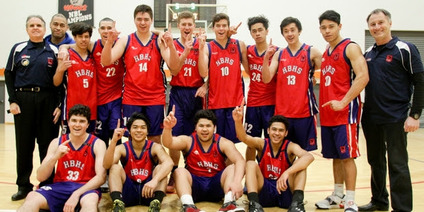 Last week at the Hastings Sport Centre, Hastings Boys’ High School captured their sixth Super 8 basketball title in their seventh consecutive final. In the local newspaper coach Curtis Wooten had confidently predicted his team would win the title. He was right! In the final however it required an outstanding performance from a rookie and a change of defensive systems to prevail. Early in the second-half, Hastings had four players in foul trouble so they changed from a man on man defence to a zonal defence. His guards’ long arms stymied Rotorua’s open jump shots and changed the game; Hastings prevailing 73-64. Year 11 guard Isaiah Jones-Mitchell claimed a game-high 21 points and won the tournament MVP award. He says it was a great team effort to capture the Super 8 crown for the second time in three years. “It was a real honour to win the MVP, but it’s all about the team. Rotorua was a great side and we had to step up defensively to win,” he says. Jones-Mitchell stands 188cm, which is only small in basketball terms. He recalls shooting a plastic ball into a stick-on hoop at the back of his bedroom door while growing up. That practice has paid off, Jones-Mitchell is a quick sharp-shooter. He has played for the Hawke’s Bay reps for the last two years and identifies his Dad as a huge influence. “Dad has done everything for me. He takes me to my games and transfers his own knowledge of the game to me. Dad played a lot of club ball and has been really supportive”, Jones-Mitchell says. Jones-Mitchell’s favourite game of the tournament (other than the final) was the win against local rivals Napier Boys’ High School. He sank five three-pointers in a conniving Hastings win. Hastings next goal is to win the Regional tournament in the first week of September and then push for a top four place at Nationals in late September. The Top six schools in the central region qualify for Nationals. Hastings Super 8 Title Run
|
Archives
August 2015
Categories |
OrganisationCollege Sport Media is dedicated to telling the story of successful young sportspeople in New Zealand
|

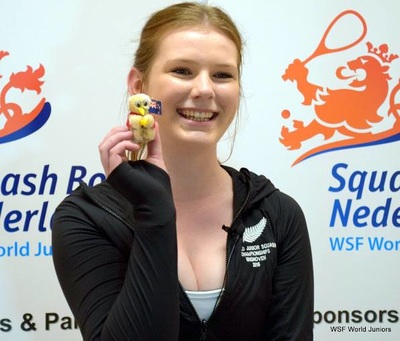
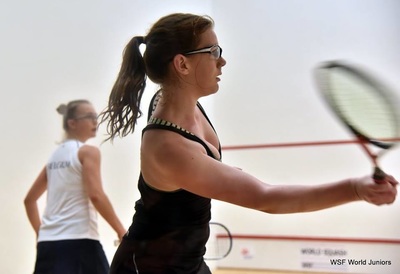
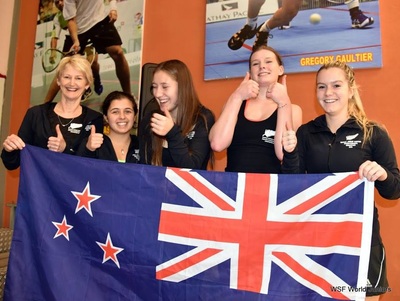
 RSS Feed
RSS Feed